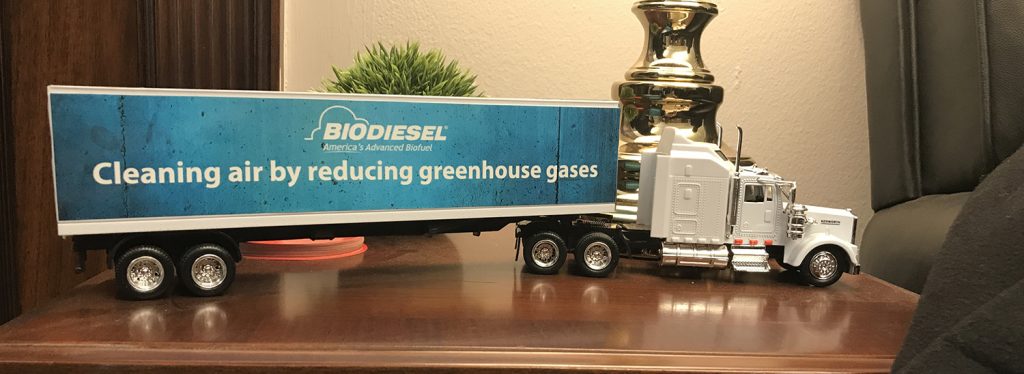The Minnesota Soybean Growers Association commends the recent proposal from the Metropolitan Council to invest $122 million for 143 new biodiesel buses to add to the Metro Transit’s fleet. The new buses would account for about 15% of the Metro Transit’s fleet.
“We thank the Metropolitan Council for recognizing that biodiesel has already proven to reduce greenhouse gas emissions here in Minnesota,” said MSGA Director Chris Hill, a Jackson farmer who also serves on the National Biodiesel Foundation. “As technology has improved, the biodiesel produced in Minnesota today is now far more efficient than how it was produced 20 years ago. We’re encouraged the Metro Transit sees what we do: that homegrown fuel can be part of the solution to the broad environmental challenges we face.”
Studies show biodiesel reduces greenhouse gas emissions by more than 50% and lowers particulate matter by 47%, reducing smog and cleaning Minnesota’s air. Minnesota was the first state in the country to require virtually all of the diesel sold in warm weather months to contain a 20 percent biodiesel blend. During the winter months, Minnesota stations sell a five percent biodiesel blend. Each year, cleaner-burning, renewable biodiesel displaces roughly 130 million gallons of petroleum diesel in Minnesota. This is especially important for the older vehicles that lack the pollution control devices now required for all diesel vehicles sold in the United States. Biodiesel also significantly reduces greenhouse gas emissions. In Minnesota, using B20 in the summer and B5 in the winter has an effect equal to removing the emissions from nearly 230,000 vehicles from the roads each year.

The U.S. Environmental Protection Agency has declared biodiesel as the first advanced biofuel in the industry. The biodiesel industry now supports nearly 60,000 jobs nationwide and more than 5,000 jobs in Minnesota alone, and contributes nearly $1.7 billion toward economic activities in the state. It also boosts demand for soybeans by an estimated 13%. Minnesota supports biodiesel plants in Albert Lea, Brewster and Isanti, which produce approximately 85 million gallons of the renewable fuel each year.
“Through farmer innovation and forward-thinking from our state leaders, Minnesota has been a national leader for two decades, and we’re pleased to see it continue to enjoy bipartisan support throughout the state,” said MSGA Executive Director and environmental attorney Joe Smentek. “While we recognize there’s a push for electric vehicles, biodiesel is a viable option until technology catches up with our needs.”
Made from an increasingly diverse mix of resources such as recycled cooking oil, soybean oil and animal fats, biodiesel is a renewable, clean-burning diesel replacement that can be used in existing diesel engines without modification. The American Lung Association has long supported the air quality benefits of biodiesel.
“The American Lung Association recognizes biodiesel as a Clean Air Choice alternative fuel for its ability to reduce criteria and lifecycle emissions in the transportation sector,” said Lisa Thurston of the ALA.
The full Metropolitan Council will meet March 10 to issue a decision on the proposal.




